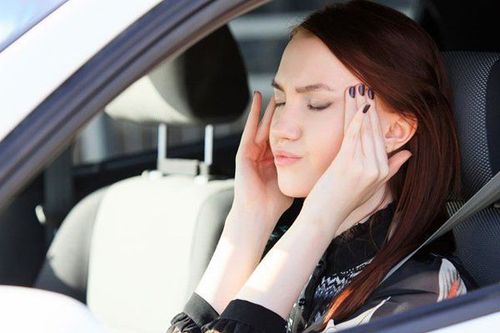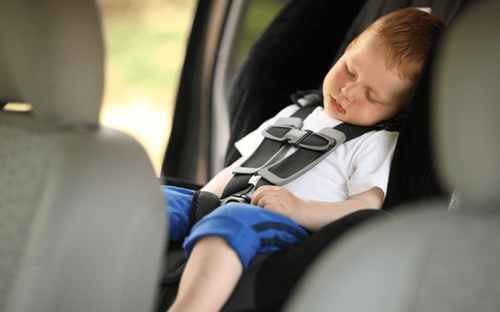This is an automatically translated article.
Since ancient times, the ancient Greeks and Romans had the knowledge of drunkenness when traveling by means of transport. Therefore, it can be said that motion sickness has existed through a long history.1. Causes of motion sickness
Motion sickness is a sensation that forms when motion felt in the ear, motion felt in the eye, and sensation in the muscles conflict with each other. The brain cannot process all of these conflicting signals, causing the body to feel dizzy and nauseous.
2. The role of the ear
Inner ear is a part of vestibular system (Vestibular is a system of nervous system, including 3 pairs of semicircular canals, cystic sinuses and cysts, which have the function of processing information belonging to the control of balance and balance. balance of the body and eye movements). The inner ear is responsible for controlling the body's sense of balance.
The semicircular tube contains fluid that moves as the head moves. The cystic and cystic sinuses are sensitive to gravity. These organs send signals to the brain to recognize when the body is standing up or sitting down.
3. The role of the brain
The brain receives signals from parts of the inner ear, and usually understands these signals. However, sometimes the brain is also confused.
For example, when sitting on an airplane, passengers feel they are moving, but their eyes send signals to the brain that they are actually sitting still. Another example, after a long cruise on the sea, passengers will have a feeling of floating even though they are on the ground.

Não bộ nhận tín hiệu từ các bộ phận ở tai trong, và thường hiểu được những tín hiệu này
4. Who often gets motion sickness?
Anyone can get motion sickness, but it's most common among children and pregnant women. Unlike a cold, motion sickness is not contagious.
5. Motion sickness symptoms
Motion sickness comes quickly and can quickly cause cold sweats and nausea. Some other symptoms include:
Dizziness Increased salivation Loss of appetite Pale skin In addition, some people also have headaches, feeling extremely tired, shallow breathing.
6. The secret to reducing motion sickness
In most people, symptoms don't last too long, usually going away as the body gets used to the movement of the vehicle. If motion sickness doesn't go away on its own, there are a few simple things you can try:
Relax your body. Find an activity to focus on, like taking a deep breath, or counting down from 100. Closing your eyes can also help. Fix your eyes on one point. Do not drink alcohol before taking the train. Eat lightly, do not leave your stomach empty when getting on a train or car. Breathe in fresh air, don't smoke. Do not read books, newspapers, or mobile phones when traveling by train or car. Choose a seat next to the wing of the plane, the deck on the ship, and the front row of the passenger car.
7. Natural Remedies

Gừng tươi có tác dụng tốt cho người bị say xe
Some natural remedies to help reduce the feeling of motion sickness:
Fresh ginger : Some scientists prove that fresh ginger root, which has long been used as a traditional remedy for nausea, is effective. for motion sickness symptoms. Cut a slice of fresh ginger in your hand, put it under the nostrils when sitting in the car to let the pungent and spicy taste fly into the nose. You can also cut a piece of ginger and stick it on the navel, stick with cotton tape.
Mint: Mint leaves help the body to relax, mint scent soothes the feeling of motion sickness.
Acupuncture and acupressure. When motion sickness can use the thumb to press on the internal organs (the internal organs are located on the side of the wrist joint, on the horizontal vein of the wrist, between the middle finger and the dorsal tendon.
Anti-sickness: Antihistamines. , over-the-counter The patch needs to be in place 4 hours before departure. One dose lasts 3 days
Other medications include:
Cyclizine (Marezine, Marzine, Emoquil) Meclizine (Antivert, Bonine) Promethazine (Phenadoz, Phenergan, Promethegan) All medications have side effects, including drowsiness and dry mouth.
8. When to see a doctor?
Motion sickness usually goes away after getting off the bus. However, if dizziness, headache, vomiting continue, or hearing loss, chest pain, contact your doctor immediately
Please dial HOTLINE for more information or register for an appointment HERE. Download MyVinmec app to make appointments faster and to manage your bookings easily.













